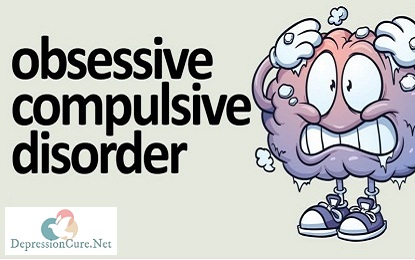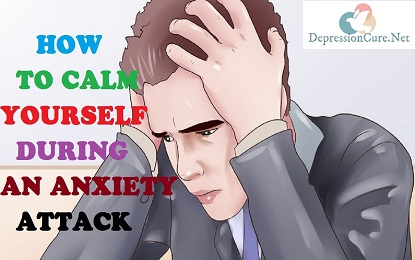Introduction
You are tired after being very busy all day long and want to rest for the night. As soon as you go to bed, then suddenly you feel that you have left the main door open. You are entirely agitated and go and check that it is closed or open. Once you find that the door is closed, then you breathe in peace and return to bed. This regular concern is right for you because it shows that you are aware of your surroundings and your things. (Obsessive Compulsive Disorder)

But many times, these thoughts keep coming back and interfering in your daily routine. You go to check the door and make sure that it is closed.
But once you return to bed, your worries begin again. You wake up again and check the door back, but your fears continue to return to bed.
These thoughts come again and again in your mind, which keep you worried or anxious all the time and also affect your routine or other activities; these thoughts are called obsession.
You become more attached to them. These attachments are different types of obsession. Some people are worried about cleanliness, and they are afraid that they have germs in their hands, while they have already been washed some time back.
Obsessive-Compulsive Disorder (OCD) sufferers experience various types of anxiety and distress. To overcome this anxiety, they do some activities or actions repeatedly; they are called compulsions. That is, they are bound to do this. These compulsions provide temporary relief to those suffering from OCD.
In severe cases, repeating the same act can have an adverse effect on the everyday activities of a person. After the cycles of obstructions, compulsive behavior reduces the ability of the person to maintain the routine; then, it can call the case of OCD.
Click Here To Read: What is Personality Disorder?
What causes obsessive compulsive disorder?
What are the symptoms of Obsessive-Compulsive Disorder (OCD)?
OCD can be identified by looking at the person’s impulsive behavior. The most common symptom is:
Cleanliness:
Some people have a constant fear of infection. They continuously wash their hands and keep cleaning the house.
Arrangement and ecstasy:
Some people remain obsessed with keeping things in the right place or arranging everything. To reduce their anxiety, they will reread the books correctly, follow the utensils properly, keep the carpet clean and adequately, also keep the pillows in the right place.
Collecting old things:
It is challenging for some people to remove old things. They keep depositing old stuff without any reason. Like old newspapers, clothes, toys and other things.
Keep counting:
Some people keep counting their similarities and other things. They also count the stairs or roadside trees etc. If they lose count, then they start again.
Security:
Some people have unsafe fears about safety, they keep checking continually that windows are properly fixed. Whether the stove or gas stove is off correctly.
If you see such behavior in someone you know, then you should try to talk to them and encourage them to get help from a mental health professional.
What is the reason for Obsessive-Compulsive Disorder (OCD)?
Although it is not a definite reason for OCD, there are some known factors in this way:
Genetic factors:
OCD sometimes comes from the parents in children.
Biological / Neurological factors:
Some researches have found that OCD becomes due to an imbalance in chemicals called Serotonin in the brain.
Changes in life:
Sometimes a person feels the burden of new responsibilities from significant changes in life like a new job or birth of a child. Apart from this, the OCD can emerge.
Behavioral factors:
People who are highly organized, clean, cautious, or want to take charge from a very early age can also sometimes be OCD.
Personal experience:
A person experiencing a deep shock can also be affected by OCD. For example, by touching the poison of killing a rat in the house, there is a compulsion to wash hands repeatedly due to the rash that emerges in hand.
Click Here To Read: What is Schizophrenia: Know the Cause, Symptoms, Types, and Treatment
Treatment of Obsessive-Compulsive Disorder (OCD)
The treatment of OCD is beneficial. And many people have been completely cured. Given the seriousness of OCD, the procedure is done from medicines to therapy.
In lightweight cases, it has been found that cognitive-behavioral therapy (CBT), such as therapy alone, is sufficient alone. In more severe cases, medicines are given, anti-depressant medicines are usually given to reduce the level of anxiety.
Treatment of Obsessive-Compulsive Disorder (OCD) sufferer
Staying with the person suffering from OCD can be tragic. It is essential to keep in mind that the person does not try to become a burden, but instead seeks to cope with everything from his concern.
Well, if they talk about getting help from them, they should be explained about this. This can be challenging, and it will need endurance, because many people believe that they do not need help, and in some cases, OCD patients start feeling embarrassed about their obsession.
You can play an active role as a person’s helper to get rid of this problem. Encourage him to face your fears. But the first step should be to get professional help.
Click Here To Read: 20 Ways About How to Calm Yourself During an Anxiety Attack
It is important to take care of yourself
To get rid of OCD, it is only worthwhile to talk to a trusted person for help. This can reduce your fear associated with the obsession. For example, physical activity such as a game and sports can improve your mental condition?and can also prevent infiltration of bad breath from coming to your senses.
The most important thing you can do for your help is to visit the mental health professional. In addition to your regular treatment, he can also prepare an action plan to help you deal with the OCD, which will benefit you while implementing it.
Note: Depression Cure does not provide any type of medical advice, diagnosis, or treatment.





